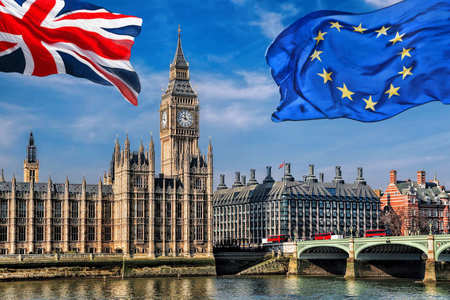
Brexit is an abbreviation for the term “British exit.” On June 23, 2016, a referendum was passed by voters in the United Kingdom approving the exit of the United Kingdom from the European Union. This disassociation from the European Union (“EU”) was met with a great deal of excitement from around the world, in addition to uncertainties concerning the impact on financial markets as a consequence from “the exit.” Market reactions toward the event were in some cases severe.
The jury is still out with respect to which type of taxpayers and investors will be most affected from the exit. According to the American Institute of Certified Accountants (AICPA), most investors will experience some repercussions from Brexit, even if they only experience fluctuations in their investment portfolios as markets react to change and uncertainty. Clients who regularly conduct business with the UK will likely feel the most impact from Brexit. These would include clients who have UK-based sales or who purchase goods or services from UK-based enterprises.
The AICPA goes on to say that there are many unanswered questions about the tax implications from Brexit. Customs and excise duty impacts, value-added tax issues, and the tax consequences of repatriating profits to or from the U.K. are some possible implications.
However, there are some ramifications that are expected from the “yes vote” to leave the EU. Some of the reasons that Americans should care about the Brexit vote are as follows:
The Stock Market Will Get Shakier
As noted by Time:
“Brexit has the potential to be a big deal because it’s a source of volatility,” says Mark Freeman, chief investment officer at Westwood Holdings Group. Burt White, chief investment officer at LPL Financial offered his forecast that If Brits actually vote to leave the EU, “expect a decline across almost all global equity markets, simply on the economic uncertainty created,”
In reality, what happened after the vote was that stocks around the world plunged on the news because of uncertainty over what would come next and because of the prospect of an economic slowdown in the UK. The result could reduce the value of Americans' 401(k) investments and individual retirement accounts. Volatile gyrations in markets worldwide could continue. "Uncertainty is the enemy of investment," said analyst Alastair George.
The Weakening of America's Largest Trading Partner
As noted by USA Today: The EU is the most lucrative market for American goods, as it is the largest trading partner with the United States. An exit by Great Britain signals a diminishment of the 28-nation bloc, undermining that economic bulwark. A matrix of trade agreements between the EU and the U.S. would be complicated and negotiated adjustments would be necessary.
It May Leave a Less Stable Europe
Brexit could start a long line of dominoes to fall across Europe. Before Brexit, multiple countries had been pondering the possibility, from Italy to France. CNN notes the following: “Greece has been considering leaving the EU for a couple of years now. Now they may start thinking out loud. Far-right politicians in the Netherlands and France looked at what happened in Britain and said, hey, we want get-out-of-the EU referendums in our countries too. If enough dominoes fall, there's a real danger the EU could collapse.”
Your Retirement
Many Americans are invested in the stock market through their retirement plans. In fact, about half of America’s full-time workers participate in their company’s 401(k), according to the Pew Charitable Trusts. Those investments leave them exposed to financial market turmoil surrounding Brexit, as the Washington Post has noted. As remote and unrelated to your retirement as an event in Britain might seem, the two are more closely connected than you might realize, and the Brexit situation warrants vigilance from investors.
Your Mortgage
A recent Time article made this observation about the Brexit’s influence on mortgages:
Mortgage rates tend to be closely tied to the Treasury market. As the market rates go so do mortgage rates tend to go. Recently, the U.S. Treasury market has experienced a decline explaining the drop in mortgage rates. “The risks surrounding Brexit have clearly had an impact on the U.S. Treasury market,” says Brian Belski, chief investment strategist for BMO Capital Markets.
As Time notes, low rates are usually good for the economy. It means lower borrowing costs for businesses and lower mortgage rates for potential home buyers. However, low rates can also signal underlying trouble in the economy. If the economic recovery were going well, borrowing rates would rise as demand for money grows and others, such as investors and business owners, pursue greater risks.
